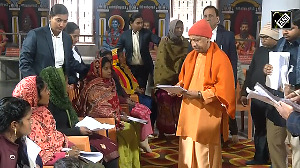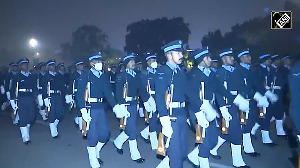Sri Lanka's parliament reopened Wednesday, ruling that President Chandrika Kumaratunga's two-week suspension of the assembly was illegal and that it would disregard any future attempt to disrupt the legislature.
Speaker Joseph Michael Perera said President Kumaratunga had no authority to prorogue parliament without the concurrence of the legislature, which is controlled by a party that is opposed to her.
"Preventing the functioning of parliament can thus be construed as a breach of its collective rights and it is my hope that the prorogation does not set an unhealthy precedent for the future," the speaker said. If confronted with such "abuse of power" by the president, the majority of members should have the right to ask for parliament to reconvene, he said.
He also recommended the amending of standing orders of parliament to carry out the function "beyond controversy". Perera is from Prime Minister Ranil Wickremesinghe's United National Party, but his office is neutral in the assembly and his rulings are binding on the legislature and cannot be challenged in court.
Citing parliamentary experience in Britain, Australia, India and New Zealand, Perera said no parliament in the world had been suspended by an executive without the concurrence of the PM.
"The president cannot prorogue Parliament without the approval of the majority of the house," he said amid protest by legislators of Kumaratunga's party, which is the main opposition in parliament.
The speaker thanked government legislators for not forcibly reconvening the assembly and breaking parliamentary tradition. Kumaratunga took control of the ministries of defence, interior and media and suspended parliament on November 4 while Wickremesinghe was on an official visit to the US.
The political crisis that ensued led peace broker Norway to suspend its mediatory role in the island. The political crisis eased Tuesday when both leaders agreed to make efforts to resolve "important national issues" and appointed a committee to advise them.






 © 2025 Rediff.com -
© 2025 Rediff.com -